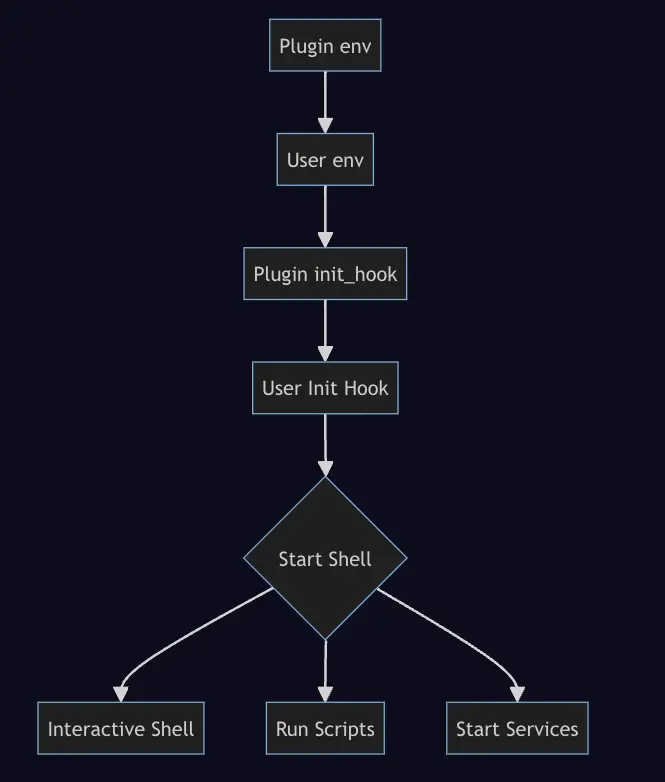Ever spent hours configuring a new package in your dev environment? Yeah, we've all been there. It sucks. That's why we created Devbox Plugins.
The plugin revolution
Imagine this: You need to add Nginx to your project. Without plugins, you're in for a world of hurt - custom configs, environment variables, file management... ugh.
But with Devbox Plugins? It's a whole new ballgame:
- Add Nginx to your project.
- ...
- That's it. You're done.
No, seriously. The plugin handles everything else:
- Slaps down a rock-solid default config
- Exposes the right env vars for easy tweaking
- Organizes config files so you're not playing hide-and-seek later
- Sets up a service so you can start/stop Nginx with a single command
And the best part? This all happens automagically when you add the package. No extra steps, no headaches.
Plugin flavors: Built-in or build your own
We've got two types of plugins to suit your needs:
1. Built-in plugins: The easy button
These are our pre-baked plugins for popular packages. Nginx, PostgreSQL, Node.js - we've got you covered. Just add the package, and the plugin kicks in automatically.
Want to see what's available? Check out our Built-in Plugins docs.
2. Custom plugins: For the DIY crowd
Need something special? No problem. You can create your own plugins following our dead-simple schema. Host them locally or on GitHub - whatever floats your boat.
The plugin lifecycle: How the magic happens
Plugins aren't just static config files. They're active participants in your Devbox shell's lifecycle:

Every time you fire up a shell, run a script, or start a service, your plugins spring into action, making sure everything's set up just right.
Anatomy of a plugin
Here's what a plugin looks like under the hood:
my-awesome-plugin/
├── README.md # Because documentation matters
├── plugin.json # The brains of the operation
├── config/
│ ├── my-plugin.conf # Default configs
│ └── process-compose.yaml # Service definitions
└── test/
├── devbox.json # For testing your plugin
└── devbox.lock
The star of the show is plugin.json. This is where you define what your plugin does, what packages it needs, what environment variables it sets - everything.
The bottom line
Devbox Plugins aren't just a nice-to-have. They're a game-changer. They take the pain out of package setup, letting you focus on what really matters: building awesome stuff.
So the next time you're adding a package to your Devbox project, remember: there's probably a plugin for that. And if there isn't? Well, maybe it's time to build one.
